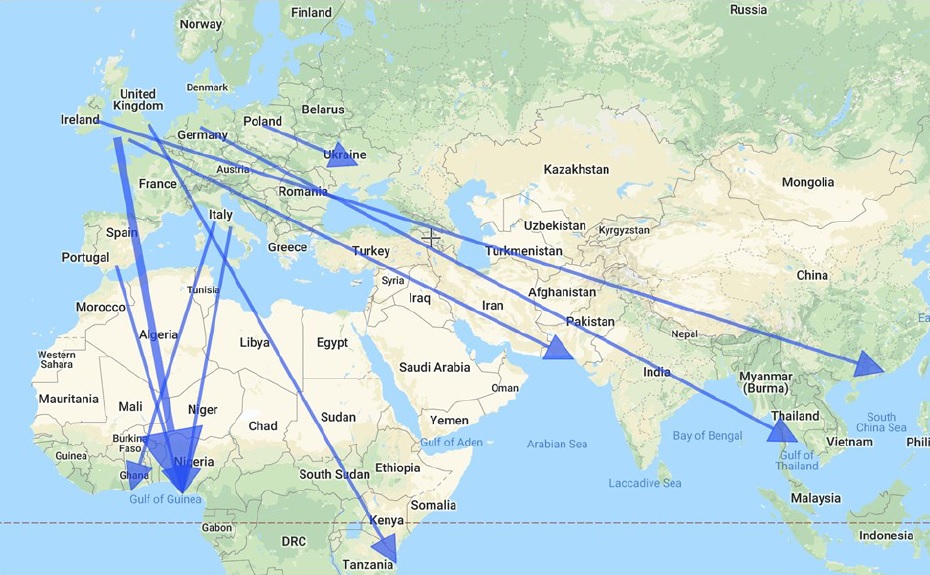The Basel
Action Networks (www.ban.org)
conducted a two-year investigation into illegal WEEE exports, tracking by GPS
the old items, and described the UK as
the ‘worst violator’ of the ten nations probed.
International
waste regulations prohibit the export of waste electrical items not in a state
fit for reuse to countries outside of the Organisation for Economic
Co-operation and Development (OECD). However, reusable electrical goods can be
exported as used electrical and electronic equipment (UEEE) – and there is a
substantial trade in items such as television screens and computer monitors to
parts of Africa and Asia where they are sold for reuse.
In the UK,
the WEEE Regulations state that exporters must provide evidence that testing
has been carried out on goods to ensure their suitability for export.
But, Basel
Action Network found that despite not being fit for reuse, 19 (6%) of the tracked
scrap items were exported, including 11 ‘very likely’ illegal shipments to the
countries of Ghana, Hong Kong, Nigeria, Pakistan, Tanzania, Thailand, and
Ukraine, outside of the EU.
The organisation has estimated that the
investigation may hint at an overall trade in as much as 352,474 tonnes per
annum of WEEE moving from the EU to developing countries.
Such a very
significant stream of illegal shipments of hazardous consumer electronic scrap
to vulnerable populations flies in the
face of EU claims to make continuous efforts to implement a circular economy
which can only responsibly exist by eliminating externalities and leakage from
the system.
The study
has prompted action from the British Environment Agency, which has sought to
remind exporters of their responsibilities with regard to WEEE and UEEE. Responding
to the findings of the study, an Environment Agency spokesperson, said: “It is
illegal to send hazardous, electrical waste abroad and doing so causes harm to
people and the environment.
We welcome the Basel Action Network’s investigation
and have inspected all operators in the areas the illegal exports were made
from. All sites were found to be small, low risk enterprises and we are
satisfied that any illegal activity has ceased.”
The
inspections at ports across the country have seen a significant reduction in
the volume of electrical waste attempted to be exported illegally, but
hazardous waste exports still pose a serious risk and it’s necessary to take
enforcement action against those involved in illegal activity.
